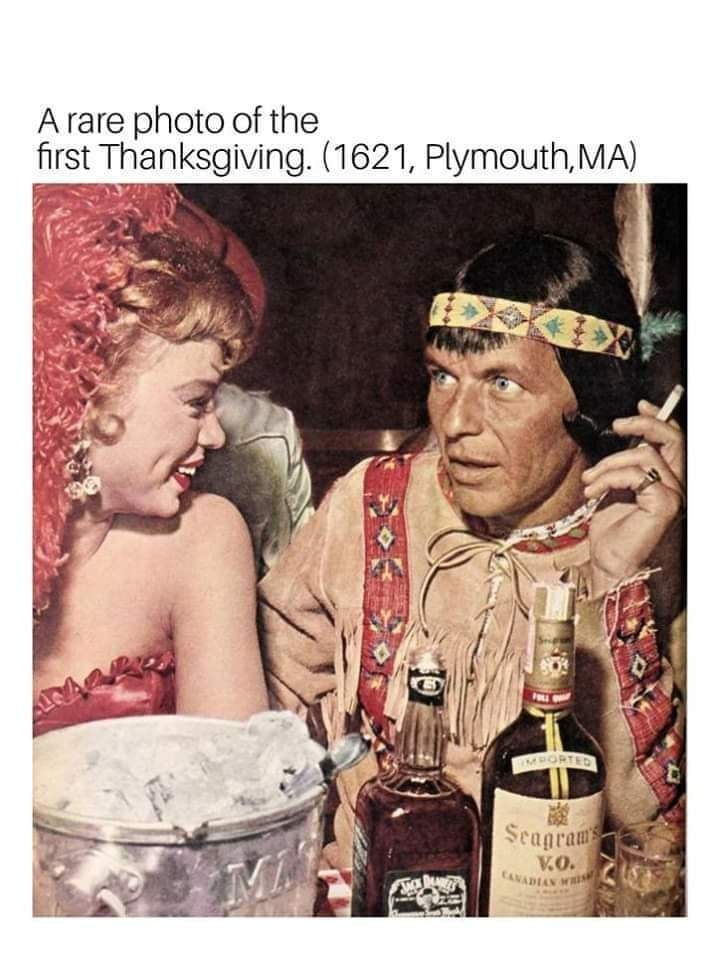Death to Nostalgia
- L. Roy Aiken

- Sep 17, 2024
- 4 min read
Updated: Sep 17, 2024
It’s all coming back to…this….
I’d thought I was done with it all last March, when I’d left the various Star Trek and Beatles groups I was a part of on Facebook. I’d been with these groups for long enough that I was tiring of seeing the same posts around times of the year noting the anniversaries of events in the histories of these two 1960’s franchises. After so many years you start to feel like you’re in an endless repeating loop, reliving the same triumphs and points of failure until you wonder if there’s ever such a thing as the future. Of course, we don’t see much of a future now anyway, do we?
While I’m seeing fewer posts on old 1960s television shows, I’m now seeing way too many posts on old Hollywood movies, long discourses on specific John Wayne films, sad tales of cruelly discarded starlets and failed actors, and even long-form posts on silent film stars. Sometimes I get a good non-Hollywood historical post from a page like Buttermilk Junction. Of course, I shouldn’t be wasting my time reading any of it. I’m getting better at getting unstuck from these things. They’re interesting reads, if sometimes inaccurate on critical details, which, bless my heart, I know.
Not only culture, but history itself stopped with 9/11. I’ll call the death of history on that one. The United States surrendered what was left of its freedom in the name of the Global War on Terrorism. Flying commercial air went from a fun, well-served adventure to a public humiliation ritual. Even the stewardesses were no longer obliged to serve you complimentary drinks and peanuts, let alone treat you politely.

As for the death rattles of culture, I have seen maybe two posts mooning over the emo/scream scene of the first decade of the 21sts century—the teenagers then are now entering their 30s—but for the most part, all of the culture there is to talk about happened before 11 September 2001. I wrote earlier of how almost all the music you hear played over the public address at car shows comes from the mid- to late 20th century. A few weeks later at another outdoor festival, I watched a guy in his mid-30s or so with a state-of-the-art one-man band setup of keyboards and guitar. He would record a loop before our very eyes, run the loop and then improvise over that before recording a loop from that and moving on to the next instrument. It took no small amount of musical skill to pull off. Digital doesn’t miss a beat, but neither did he.
So what were we playing on this state-of-the-art rig? What stood out for me were all the cover songs from Traffic, the band Steve Winwood led in the early 1970s, with an emphasis on Dave Mason’s contributions. This was music made and released over half a century ago. There was one Brittany Spears’ song from her late 1990s days played with delightful irony, but most of the music was from the 1970s and ‘80s. For this one guy, born in the late 1980s, he found little to treasure from the radio in the years in which he was a teen.
The metal covers band that came up to play after him were in their early to mid-20s. If the song wasn’t from the 1980s or ‘90s, it was an original they came up with. Mind you, these are children born at the turn of the 21st century. Culture really did drop dead with Y2K. Or 9/11. Pick a date.

Meanwhile, back on Facebook, the towering walls of text describing So-and-so’s experience making This Classic Movie or So-and-so talking about what it was like to play guitar with So-and-so are crowding out what light there is on the platform. Things get even darker for those of us who realize it was all for nothing. To paraphrase a popular meme based on a line from No Country for Old Men, “If the culture you so loved led you to this, of what use was the culture?” You could substitute “history” for “culture” and now maybe we come to understand what Christ meant when he told the man who wanted to bury his father, “Let the dead bury their dead,” and later, to another, “None who puts his hand to the plow and looks back are fit for the kingdom of God.”
So I’ll make “Death to Nostalgia” its own entry. It might not be chock full of posts—I’m trying to minimize looking back, after all—but there should be enough to reinforce my general theme of there being no “good old days” because everything about those good old days led straight to our current sci-fi dystopia. We’ve forgotten why and how we lost what we lost. It will be my most unsatisfying duty to remind anyone reading this blog. Very few people have the eyes to see, the ears to hear, and the hearts to understand, but if I can reach one or two, they’ll be better than nothing.





Comments